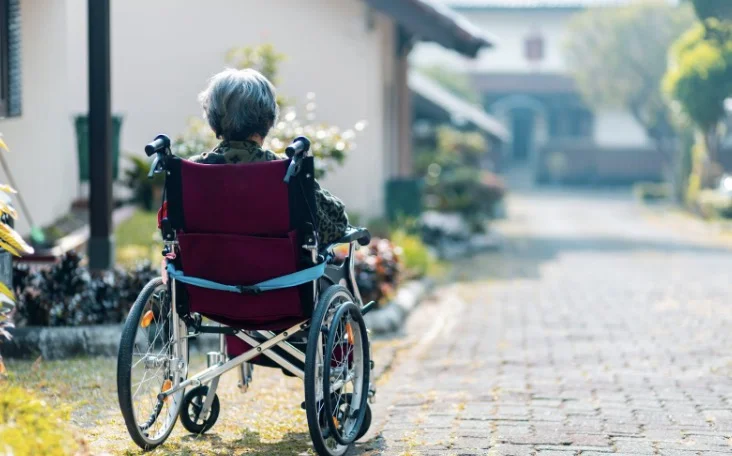Dementia is a debilitating condition that affects millions of people worldwide, primarily older adults. It encompasses a range of cognitive impairments, including Alzheimer’s disease, that progressively impact memory, thinking, and behavior. For families, placing a loved one with dementia in a nursing home can be a difficult decision, often made in hopes of providing the best possible care. However, the reality is that dementia patients are particularly vulnerable to abuse in nursing homes.
Story Stages
Factors Contributing to Vulnerability
- Cognitive Impairment:
- Dementia patients often have impaired memory and communication skills, making it difficult for them to recognize, articulate, or recall instances of abuse. This cognitive decline means they may not fully understand or remember harmful interactions, leaving them unable to report or defend themselves against abusers.
- Dependence on Caregivers:
- Individuals with dementia rely heavily on caregivers for daily activities, including bathing, dressing, eating, and medication management. This dependence can create a power imbalance, where caregivers have significant control over the patient’s well-being, increasing the potential for abuse.
- Behavioral Symptoms:
- Dementia can cause behavioral changes such as aggression, agitation, and wandering. These behaviors can be challenging for caregivers to manage, sometimes leading to frustration and inappropriate responses. Unfortunately, some caregivers may resort to abusive methods to control or punish difficult behaviors.
- Isolation:
- Many dementia patients experience social isolation due to their condition. Reduced contact with family, friends, and the outside world can prevent the detection of abuse. Abusers may exploit this isolation, knowing there are fewer opportunities for the abuse to be noticed and reported.
- Communication Barriers:
- The ability to communicate effectively diminishes as dementia progresses. Patients may struggle to express their needs, experiences, or discomforts, which can hinder their ability to report abuse. Additionally, caregivers who are not trained in dementia care may misunderstand or ignore attempts at communication.
Types of Abuse Faced by Dementia Patients
- Physical Abuse:
- Physical abuse includes hitting, slapping, pushing, or using excessive restraint. Dementia patients may have unexplained bruises, fractures, or other injuries that caregivers might dismiss as accidental or related to the patient’s condition.
- Emotional Abuse:
- Emotional abuse involves verbal assaults, threats, humiliation, and intimidation. Dementia patients may be subjected to harsh language or isolation as a form of punishment, which can exacerbate their confusion and distress.
- Neglect:
- Neglect is a form of abuse where caregivers fail to provide necessary care, including hygiene, nutrition, and medical attention. Dementia patients might be left in soiled clothing, malnourished, dehydrated, or without necessary medications, leading to severe health complications.
- Financial Abuse:
- Financial abuse involves the unauthorized use of a patient’s funds or property. Dementia patients are particularly susceptible because they may not notice missing funds, understand financial transactions, or remember authorizing financial decisions.
- Sexual Abuse:
- Sexual abuse includes any non-consensual sexual contact or behavior. Dementia patients, due to their cognitive impairments, may be unable to comprehend, resist, or report such actions, making them easy targets for sexual predators.
Strategies for Prevention and Protection
- Enhanced Training for Caregivers:
- Proper training in dementia care is crucial for caregivers. This training should include understanding dementia symptoms, managing difficult behaviors with empathy, and recognizing signs of abuse. Educated caregivers are better equipped to provide compassionate care and avoid abusive practices.
- Regular Monitoring and Supervision:
- Nursing homes should implement strict supervision and regular monitoring of caregivers. This can be achieved through unannounced visits, regular evaluations, and the use of surveillance cameras in common areas to deter abusive behavior.
- Strong Reporting Mechanisms:
- Establishing clear and accessible reporting mechanisms for both residents and staff can help identify and address abuse early. Anonymous reporting systems and regular interviews with residents and their families can provide safe avenues for raising concerns.
- Family Involvement:
- Families should maintain regular contact with their loved ones in nursing homes. Frequent visits, phone calls, and involvement in care planning can help detect any changes in behavior or well-being that might indicate abuse. Families can also advocate for their loved ones by staying informed about their rights and the quality of care provided.
- Empowering Patients:
- Where possible, empowering dementia patients to express their needs and concerns can reduce vulnerability. This might include using communication aids, promoting participation in decision-making about their care, and providing opportunities for social interaction and engagement.
- Legal Protections and Advocacy:
- Governments and organizations should enforce strict regulations and provide resources to protect nursing home residents. Advocacy groups can offer support, information, and legal assistance to families and residents, ensuring their rights are upheld and abuses are addressed.
Conclusion
Dementia patients in nursing homes are among the most vulnerable members of our society. Their cognitive impairments, dependence on caregivers, and communication challenges make them easy targets for various forms of abuse. Understanding these vulnerabilities is the first step in creating a safer environment for them. By enhancing caregiver training, implementing rigorous monitoring, involving families, empowering patients, and enforcing legal protections, we can significantly reduce the risk of abuse and ensure that dementia patients receive the compassionate and respectful care they deserve.
